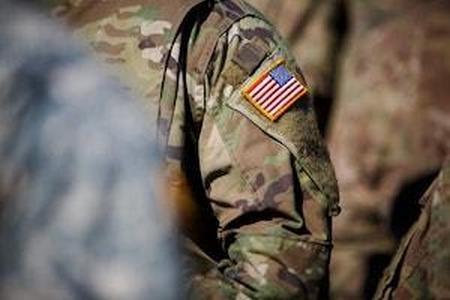DACA Recipients in the Military
 After the announcement that the Deferred Action for Childhood Arrivals (DACA) program will be phased out after six months, 800,000 people from all walks of life are faced with questions. One group that has often been overlooked is the approximately 2,700 DACA recipients who are either serving or have signed contracts to serve in the United States military. Their situation is just as precarious as the others’, but they have arguably been betrayed more fully.
After the announcement that the Deferred Action for Childhood Arrivals (DACA) program will be phased out after six months, 800,000 people from all walks of life are faced with questions. One group that has often been overlooked is the approximately 2,700 DACA recipients who are either serving or have signed contracts to serve in the United States military. Their situation is just as precarious as the others’, but they have arguably been betrayed more fully.
The MAVNI Program
Instituted under President Obama in 2009, the Military Accessions Vital to the National Interest (MAVNI) program recruits immigrants with legal status (which DACA recipients do have) who are held to possess vital skills useful to the U.S. military, such as languages, nursing or physician’s abilities, or knowledge of mission terrain. More than 10,000 people have been recruited for the program, and to lose one-tenth of its personnel at once would be a significant issue for MAVNI and for the Armed Forces as a whole.
Under the original rules of the program, MAVNI recruits may apply for and receive citizenship in exchange for service, sometimes as soon as their date of graduation from basic training. However, the current administration is instead contemplating cancelling the contracts of both program applicants and those currently serving. Enlistment has also already been delayed for some, which can be seen as an inappropriate directive—without their contracts, many nonresidents (even those with valid visas) may wind up without legal status as their visas expire.
Potential Consequences
The cancellation of MAVNI contracts is not occurring in a vacuum. Legislative action is on the table, both for MAVNI and for DACA as a whole. The announcement phasing DACA out called for a six month period to wind down the program, but during that time, Congress may act to protect either MAVNI recruits or DACA recipients as a whole. There is also widespread distaste among lawmakers for an administration that reneges, or entertains reneging on contracts it has entered into, which may push legislative action even further to the forefront.
If you are a DACA recipient either in the military or awaiting active service, you may not have much recourse as of this writing. DACA’s entire purpose is to grant legal status to those who have none, yet meet stringent requirements that might otherwise qualify one for citizenship if they did not have the accrued unlawful presence. People who are relatives of U.S. citizens or of Lawful Permanent Residents (LPRs, or green card holders) may sometimes apply for waivers if they have unlawful presence accrued. Still, even if this is applicable to your case, you will not be eligible to apply for your waiver while remaining in the country.
Ask an Immigration Attorney
Until the six month deadline has passed, there is hope for a legislative compromise for DACA recipients, which may help MAVNI recruits even if the program undergoes significant modification. If you have further questions, consulting an immigration attorney can help ease your mind. The passionate Chicagoland immigration lawyers at Mevorah & Giglio Law Offices will try to assist you and your loved ones to the best of our ability. Call the office today to set up an initial appointment.
Source:
http://www.navy.mil/submit/display.asp?story_id=51953
 English,
English,
 Spanish,
Spanish,
 Polish,
Polish,
 Urdu
Urdu













 Make a Payment
Make a Payment



